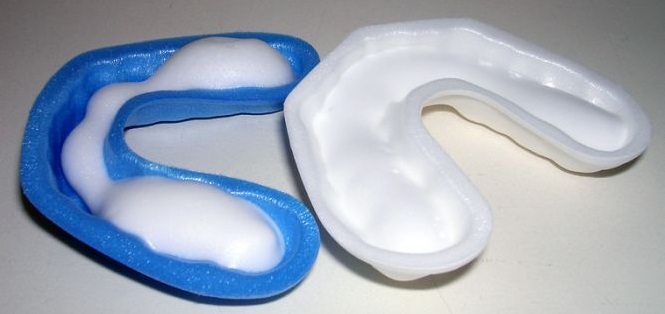
As discussed in April’s blog article , the controversial debate over water fluoridation has been raging since fluoride was first introduced into our water. Today, it continues in our dental hygiene offices.
This begs the question: is topical fluoride treatment necessary after a dental cleaning?
The belief was that having fluoride in the body during dental development would increase the fluoride content in the teeth before they erupted into the mouth – thereby making teeth stronger and less susceptible to dental decay. However in the last decade or so, dental research has shown that fluoride benefits teeth most when used topically as a rinse, foam or varnish – after teeth have already erupted into the mouth.
In 1999 and then again in 2001, the Center for Disease Control (CDC), stated that “fluoride prevents dental caries. Predominantly after eruption of the tooth into the mouth and its actions primarily are topical for both adults and children.” (fluoridealert.org).
So… how exactly does apply topical fluoride on teeth benefit teeth?
- Topical fluoride (TF) strengthens the dental enamel matrix.
- TF helps remineralize cavities that are in the early stages.
- TF prevents the demineralization (softening) of the tooth enamel which can lead to dental decay.
- TF interferes with the enzymes produced by the bacteria that are responsible for acid production. Acids produced by bacteria in the mouth break down tooth enamel.
- TF helps decrease tooth root sensitivity and reduces the risk of root cavities.
- TF helps strengthen teeth margins around dental fillings, decreasing the risk of recurrent dental decay.
Professional topical fluoride application is very important in children and adults that are at a high risk for dental cavities. Topical fluoride is also available in some mouth rinses such as Listerine Total Care for adults and Listerine Smart Rinse for children. Fluoride rinses used at home deliver a lower dose of fluoride than fluoride treatments in the dental hygiene office, but when used routinely are very effective in helping decrease cavities and tooth sensitivity.
Parents should make sure that their child has excellent spitting abilities before they use any mouth rinse or toothpaste containing fluoride, as children will swallow what they cannot expectorate. For individuals who are at a higher risk of dental cavities, specially formulated toothpastes with higher than normal fluoride levels are available, with some containing up to 5000 parts per million (ppm). For 1-2 hours after brushing, fluoride levels increase in the saliva. Therefore, brushing teeth at least twice a day is very important not only for oral hygiene purposes, but for increased exposure of teeth to fluoride.
A registered dental hygienist is able to evaluate your risk of dental cavities and advise if a topical fluoride treatment is beneficial for your teeth both after a dental cleaning and at home as part of your oral hygiene care.
Is your smile due for a professional cleaning?
Maple Dental Hygiene Care’s friendly and experienced dental hygienist Pina Mazza is happy to help with all your oral hygiene care needs. Contact Pina at PinaMazza@mapledentalhygienecare.comtoday to schedule a visit!
